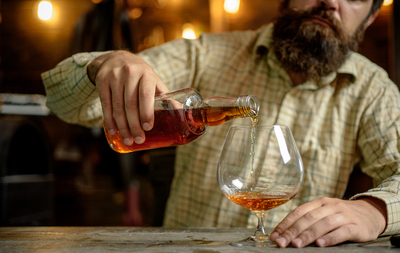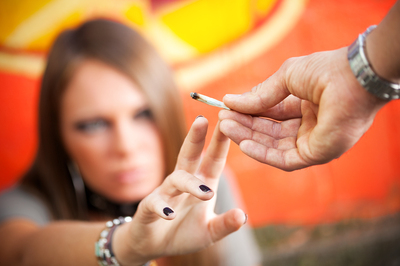
When does dependence become an addiction? That depends.
If you are struggling with substance abuse issues, you may have trouble keeping up with all the terms and what they mean. Two frequently used words which may require clarification are dependence and addiction. Here’s a closer look at the concepts behind each, along with what they mean for treatment and recovery.
Defining Dependence
Dependence is a physical condition which develops when the neurons in the brain adapt to the point that they can only function normally when the drug is present. As dependence increases, the body becomes increasingly reliant on external sources to maintain equilibrium. Without the drug, physiological reactions can occur ranging from mild to severe.
This phenomenon is known as withdrawal. While this can be life-threatening, it is also medically treatable.
Defining Addiction
So what is an addiction, then? The American Society of Addiction Medicine (ASAM) defines addiction as “a primary, chronic disease of brain reward, motivation, memory, and related circuitry.”
According to ASAM, addiction can be characterized by the acronym “ABCDE”: the inability to Abstain; impairment in Behavioral control; Cravings; Diminished recognition of significant problems; and a dysfunctional Emotional response.
“The power of external cues to trigger craving and drug use, as well as to increase the frequency of engagement in other potentially addictive behaviors, is also a characteristic of addiction, with the hippocampus being important in memory of previous euphoric or dysphoric experiences, and with the amygdala being important in having motivation concentrate on selecting behaviors associated with these past experiences,” continues ASAM.
Dependence Versus Addiction
Physical dependence can be resolved with medication. It is also characterized as predictable and “normal” in terms of how it is treated. Conversely, addiction is considered abnormal, multi-factored, and complex. In other words, while dependence is a physical problem that can be managed with detox, addiction is a psychological condition requiring a different approach. As such, insists the NAABT, focusing on dependence can become “a distraction from the real problem, addiction.”
Another way to think of it? While a person who is dependent on caffeine may have symptoms of withdrawal such as a headache and difficulty concentrating, a person who is addicted to drugs sometimes will do anything to get them. Explains DrugAbuse.com: “This irrational persistence is what sets addiction apart from a mere physical dependence.”
It’s also true that dependence and addiction can occur without each other. Many chronic pain patients take their medications as prescribed without losing control. The same applies to addiction. While certain substances may not be linked with powerful withdrawal symptoms, they can still lead to addiction without physical dependence. Likewise, non-substance addictions, such as sex and gambling, also fall into this category; it is possible to have compulsive behaviors and unnatural cravings without physical dependence.
That being said, it is common for dependence to progress to addiction.
The Work of Rehabilitation
Certainly, medically treating physical dependence is an important part of supporting the substance abuse recovery process. Explains NAABT: “Because physical dependence is normal and reversed with a slow taper, treatment medications simply maintain some of the existing physical dependence in order to suppress symptoms of craving and withdrawal. This allows the patients to make behavioral changes that will rewire the brain reversing some of the changes of addiction. Once the slow and deliberate process of reversing destructive brain adaptations is significant, a slow taper resolves the remaining physical dependence.”
But detoxification is only one part of it. In fact, true recovery is facilitated by acknowledging and addressing brain changes associated with addiction through non-drug measures, such as behavioral therapy and family counseling.

Addiction treatment comprises non-physiological factors that may lead to relapse.
“To the addicted brain, obtaining and taking drugs can literally feel like a matter of life and death,” proposes DrugAbuse.com. This is where rehab programs like St. Louis drug rehab program Harris House enter the mix. In addition to treating dependence, these comprehensive rehab programs attend to the multitude of underlying factors that lead to addiction, including everything from the family environment to drug accessibility.
The takeaway? While treating dependency may be a short-term remedy, it ultimately does nothing to reduce the long-term risk of relapse. In prioritizing addiction, however, successful rehab programs like Harris House take a bigger picture perspective on the issue, thereby increasing an individual’s chance of lasting recovery. Contact us at Harris House today to learn about our comprehensive substance abuse and addiction programs.







